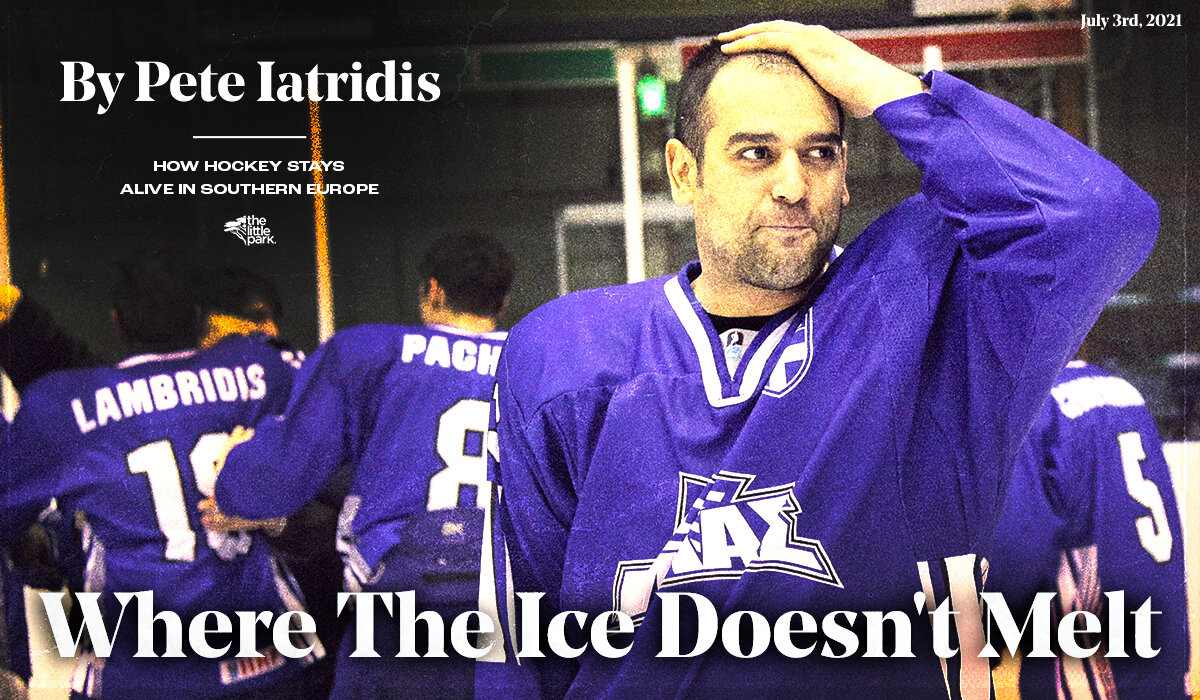why a 31-team NHL playoff would be beneficial to everyone.
As the COVID-19 days continue to drag on, the likelihood of the NHL coming back to resume its regular season seems more and more unrealistic.
Much has been discussed as to whether the league will even return this season with the uncertainty of the virus putting everything on hold. The few areas of hope, at least from the professional sporting realm, is the return of baseball in Korea (KBO) and looming return of the Bundesliga in Germany later this month.
Should the NHL return this season to close out the 2019-20 campaign, it has an opportunity of a lifetime to excite fans like never before. Even commissioner Gary Bettman has said his hope and expectation is for the league to finish the year in some form.
Sportsnet’s Chris Johnston reported in mid-March about how the league was looking at a 24-team format for its post-season with eight teams getting a bye and the 16 other teams competing in a best-of-three series play-in.
But why not try a 31-team playoff with the winner still hoisting the Stanley Cup?
The logistics of it are murky, but it would allow a great opportunity around North America for hockey fans, media and advertisers to still get the most out of this season and bring some hope for when COVID-19 does pass.
The idea of a 31-team playoff was supported by New Jersey Devils defenceman P.K. Subban on March 26.
“I did like that the idea that was floating round about a 31-team playoff format,” Subban told NJ.com. “I like that to kind of give us an opportunity to get in the playoffs and play some meaningful hockey down the stretch.”
Subban’s Devils would likely be out of a typical playoff spot if the season were to end today as they sit in 14th place in the Eastern Conference.
If this scenario were to play out, one way the league could do it would be similar to what takes place in the Quebec Major Junior Hockey League. The QMJHL has 18 teams in its league with only 16 teams making the post-season. Then, the first place team plays the 16th place squad, second versus 15th, etc.
Here’s how it would look if this scenario played out and the regular season ended when play resumed:
Boston Bruins (1) vs. Detroit Red Wings (16)
Tampa Bay Lightning (2) vs. Ottawa Senators (15)
Washington Capitals (3) vs. New Jersey Devils (14)
Philadelphia Flyers (4) vs. Buffalo Sabres (13)
Pittsburgh Penguins (5) vs. Montreal Canadiens (12)
Carolina Hurricanes (6) vs. Florida Panthers (11)
Toronto Maple Leafs (7) vs. New York Rangers (10)
Columbus Blue Jackets (8) vs. New York Islanders (9)
Although this would create an extra round of playoff hockey, it could be played in a best-of-three or best-of-five format as opposed to the traditional best-of-seven to speed up the process.
Over in the Western Conference, it gets a little bit trickier as there’s an uneven number with 15 teams.
To that end, why not do something similar to MLB where there’s an elimination game between the 14th and 15th place teams, in this case the Los Angeles Kings and San Jose Sharks? That would surely be fun to watch.
Then, the first and second place teams, St. Louis and Colorado would get a bye into the second round with teams three through 14 duelling it out. Here’s how those matchups would look:
Vegas Golden Knights (3) vs. San Jose/Los Angeles (14)
Edmonton Oilers (4) vs. Anaheim Ducks (13)
Dallas Stars (5) vs. Chicago Blackhawks (12)
Winnipeg Jets (6) vs. Arizona Coyotes (11)
Calgary Flames (7) vs. Minnesota Wild (10)
Nashville Predators (8) vs. Vancouver Canucks (9)
Once these matchups, whether it be best-of-three or five are completed, the teams would get re-classified with St. Louis and Colorado taking on the respective lower-seeded teams.
Shaking up its playoff format, at least for this season, would rival what MLB is looking to accomplish over the next few years. It would also drive viewership up exponentially for a country like Canada starved by no — current — hockey on TV.
To no surprise, Sportsnet, the Canadian NHL rights holder, sees its most viewers when more Canadian teams are in the post-season. Since starting the massive NHL deal in 2014, there’s been two occasions where five Canadian teams have joined the race for the Stanley Cup. Both times only two Canadian teams advanced, although in the 31-team format, more Canadian teams could remain for a prolonged period meaning higher viewership and revenue dollars.
Imagine having viewers from coast-to-coast tuning in possibly through August to see their favourite teams compete for the sport’s ultimate prize. On top of other major sports happening at the same time (ie. the Raptors and Blue Jays), it would make for a wild summer of sports.
While there’s currently more discussion from league insiders about a 16-team post-season, having a format engaging fans from all the different markets will only help as the NHL gets deeper into the playoffs.
It could be done, but it would take an open-minded approach, and for this virus to dissipate.
-Ryan McKenna
Journalist, producer, and senior-editor of the park journal.











